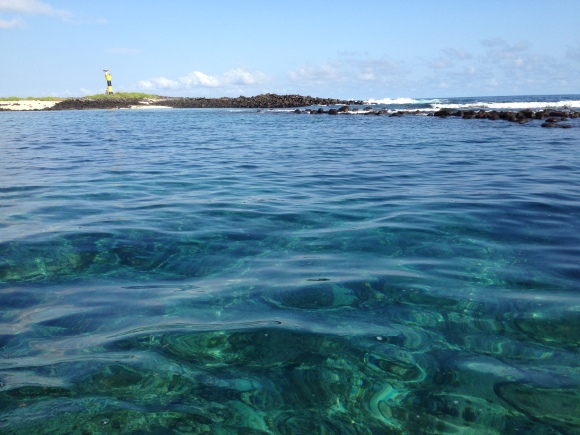Nature’s Hallelujah: The Galápagos
As our panga neared a formation called “The Cathedral” at Cerro Brujo on San Cristobal island, I had mixed emotions. I was in awe, watching Kicker Rock appear and disappear as the waves batted us to and fro. I was also perplexed. How could anyone have ever sailed these waters and failed to realize the beauty of places like Cerro Brujo?

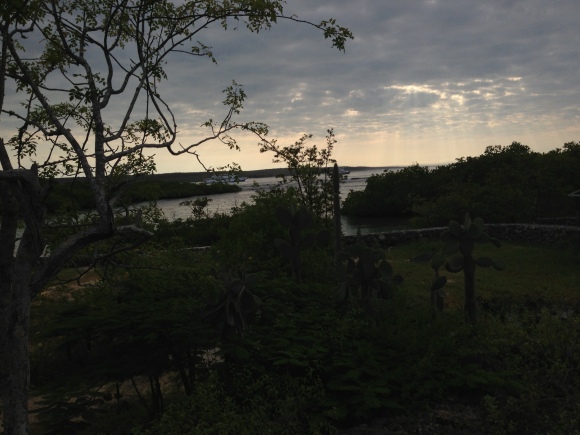
During the heady moment of imperial expansion, European powers planted their flags in just about every type of soil in the world. They mined, they conquered, they spread their germs and culture with liberality across most terrains. But upon reaching the Galápagos, yet unnamed, they found nothing to mine. No one to conquer. Nothing to take home. And so they called the islands cursed.
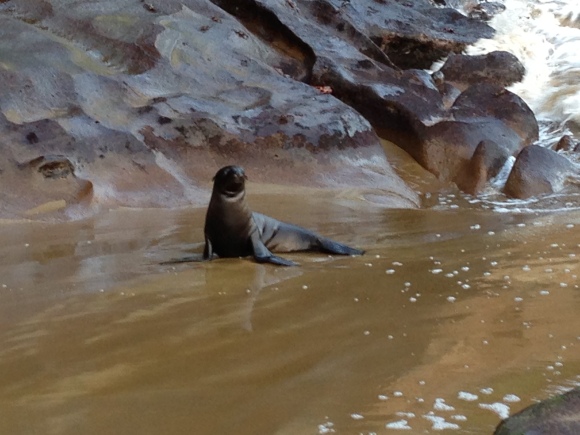
The “Islas Encantadas” of the South American pacific would suffer through the middle ages under the worldview that nature’s singular purpose was to illustrate Biblical principals to mankind. Bacon and his lot didn’t help either, because usefulness as the measure of value did not change the status of the volcanic islands, void of fresh water and edible vegetation.

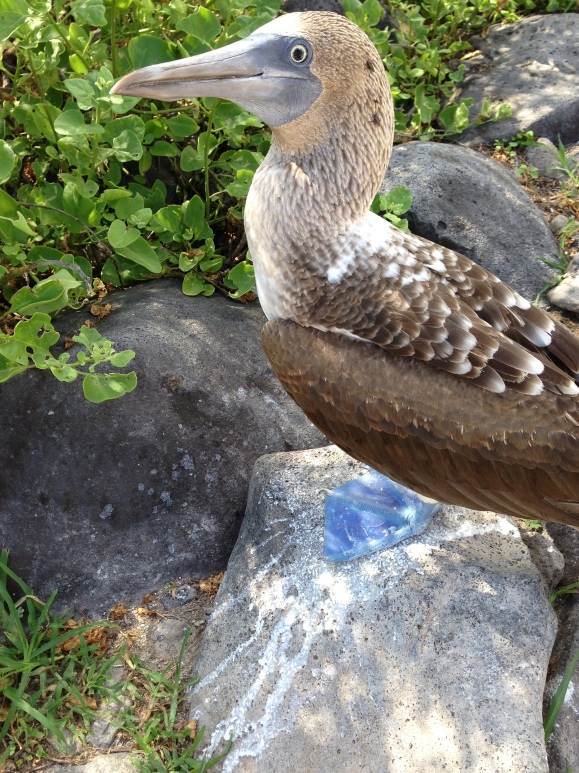
\
Like most places deemed uninhabitable or useless by decent society, the Enchanted Islands began to collect indecent society. Pirates, felons, and women on the run found ways to inhabit the rocks, only to be murdered, run off, or defeated by the odds against survival in one place that would not yield to man’s narrow view of dominion. No one felt their efforts more strongly than the tortoises, who were the only edible game, and were thus hunted to within millimeters of extinction.
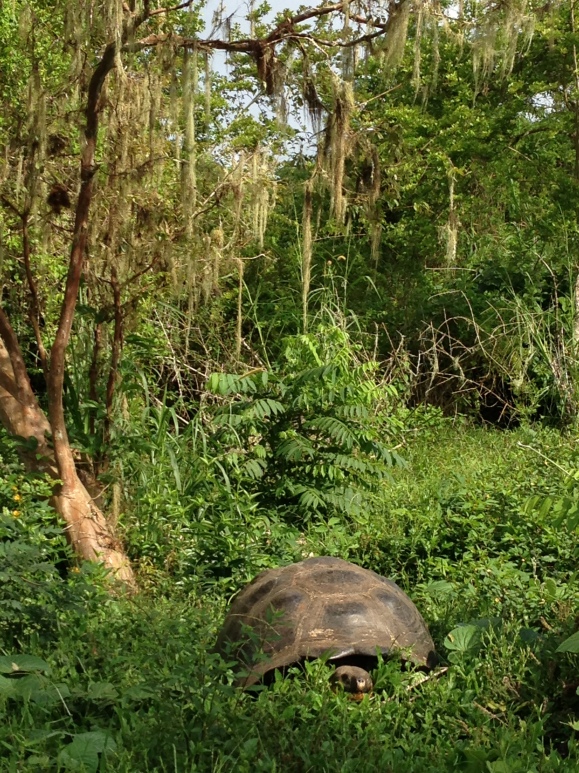
It was not until Charles Darwin stepped onto their shores in 1835 that anyone found something worth taking home: a bag of dead finches.
Darwin’s gaze dignified the islands, and anyone who now gazes at Kicker Rock glowing in the sunset owes to him one of the awesome experiences of her lifetime. And the islands that were of no value to those seeking gold, God, or glory, have become a goldmine to those witnessing the glory of God. Forget the culture wars for one moment and give thanks that we have been freed to love nature for what it is.

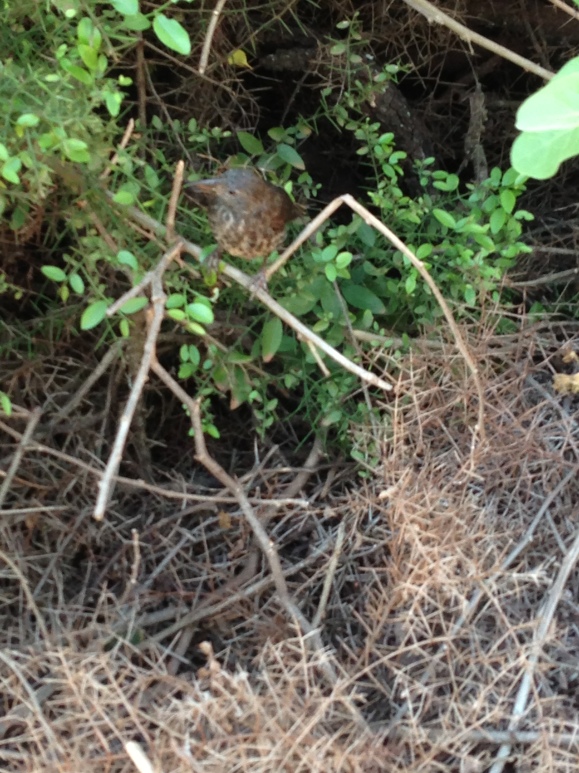
The Galápagos, in our time, are still not a quiescent subject to the whims and wishes of man. The National Park takes precedence over tourism, agriculture, and commerce. Guides are unapologetic in dishing out the answer we think we can buy our way out of, “No.”
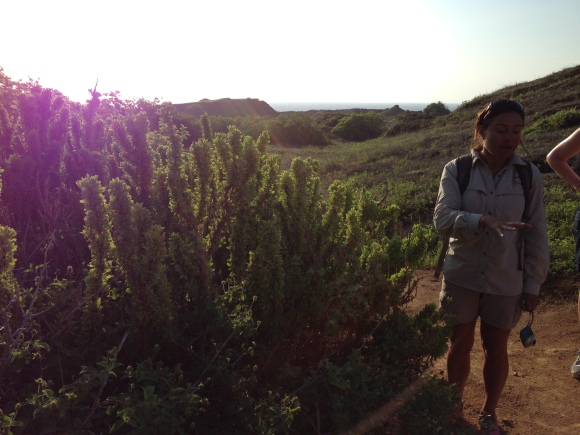

Visions of Caribbean luxury are dashed on the tuff cones and chased far away by biting horse flies. Predictability is low where animals are not bated and tamed to earn big tips from schedule-bound tours. The heat is unforgiving in its season, and shade is found in as many places as is fresh water…none.
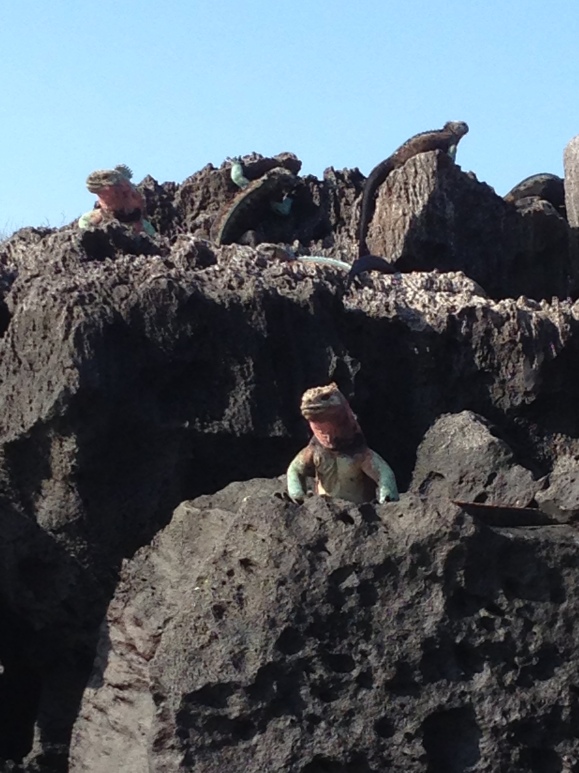
Yet, Darwin’s children flock like sea lions to those shores, seeking to understand the processes of nature, and its continual course of becoming. The islands attract those who are intrigued by an isolated ecosystem where predators are scarce and resources scarcer. Those who see a pond covered in sesuvium or a collapse crater and gasp in wonder. Those who marvel at the beaks of finches. There are some hallelujah’s only uttered in the language of science.


And so as much as indignance swells inside me to the rhythm of the waves beneath me, I am also glad. I am relieved that in a moment when we ruined so much, we did not ruin everything. I am relieved that those things which we did not deem worthy of our exploitation have survived to become our treasures. I rejoice for those who did not impose a tax upon every inch of Creation. Those who bound their fortunes to the flourishing of nature.


The conquistador spirit is alive and well, I know. Standing on the dock while Lonesome George’s remains were escorted by documentary crew off to the Smithsonian, I saw the sad face of the local girl who had grown up in the glow of his renown. She will never be able to buy the plane ticket to go to the Smithsonian to pay homage. She has lost him. Naturalist eyes are not immune to the allure of the spoils.

We cannot simply rest in our rapture over the rarity of this place. We must keep advocating, must keep reforming, must keep making those anti-Babel decisions that keep us off of the throne of Heaven. The Galápagos are a place where we can go to remind ourselves that we are not the measure of all things.

NOTE: for more light hearted detail of our trip, see the Alamo Area Master Naturalist Newsletter article.
